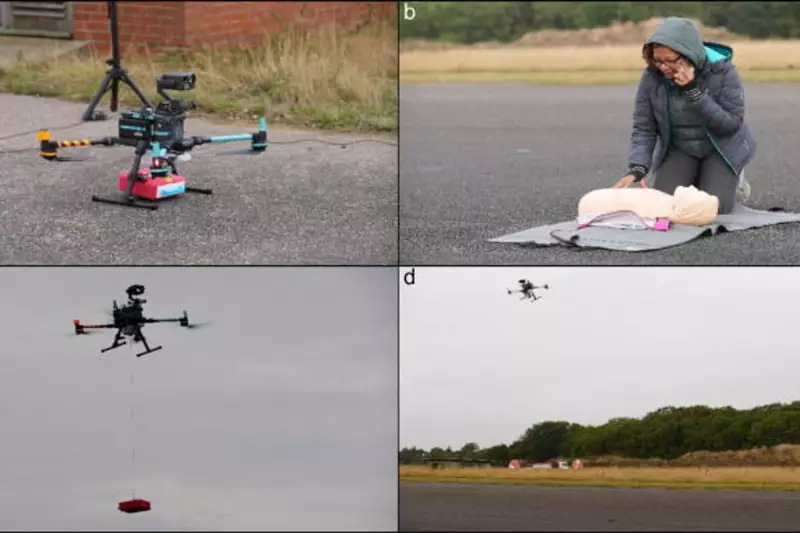
The National Health Service is launching a revolutionary trial that could transform emergency cardiac care across Britain. Medical drones will soon deliver life-saving defibrillators to heart attack victims within minutes, potentially saving thousands of lives annually.
This cutting-edge initiative, developed in partnership with Skyfarer and the University of Warwick, aims to slash critical response times when every second counts. The autonomous aircraft will operate from strategic locations, reaching patients far quicker than traditional ambulance services in many scenarios.
The Race Against Time
When cardiac arrest strikes, survival rates drop by approximately 10% with each passing minute without defibrillation. Current ambulance response targets stand at seven minutes for Category 1 emergencies, but rural areas often face significantly longer waits.
These medical drones promise to bridge this critical gap, delivering automated external defibrillators (AEDs) directly to bystanders or family members at the scene. The units provide clear audio and visual instructions, enabling untrained individuals to administer emergency treatment while awaiting paramedics.
How the Drone Response System Works
The emergency system integrates seamlessly with existing NHS infrastructure:
- Emergency calls reporting cardiac symptoms trigger simultaneous drone and ambulance dispatch
- Drones launch from strategically placed bases across trial regions
- Live video streaming allows ground teams to guide bystanders through the process
- Defibrillators are lowered safely to the exact location using smart delivery systems
Beyond Urban Centres: Tackling Rural Health Inequalities
This technology promises particular benefits for rural communities where geographical barriers often delay emergency medical response. Remote villages, coastal areas, and regions with challenging terrain could see emergency response times halved in some cases.
Professor Sir Stephen Powis, NHS national medical director, emphasised: "Harnessing drone technology to deliver life-saving defibrillators could potentially save lives in hard-to-reach communities across the country."
The Future of Emergency Medicine
If successful, the drone delivery system could expand beyond defibrillators to include:
- Emergency medications for allergic reactions
- Blood products for trauma patients
- Anti-venom for snake bites
- Specialist equipment for complex emergencies
The year-long trial represents one of the most significant innovations in emergency medical response since the introduction of the NHS emergency number. It demonstrates the health service's commitment to leveraging technology to improve patient outcomes and address healthcare disparities across the nation.





